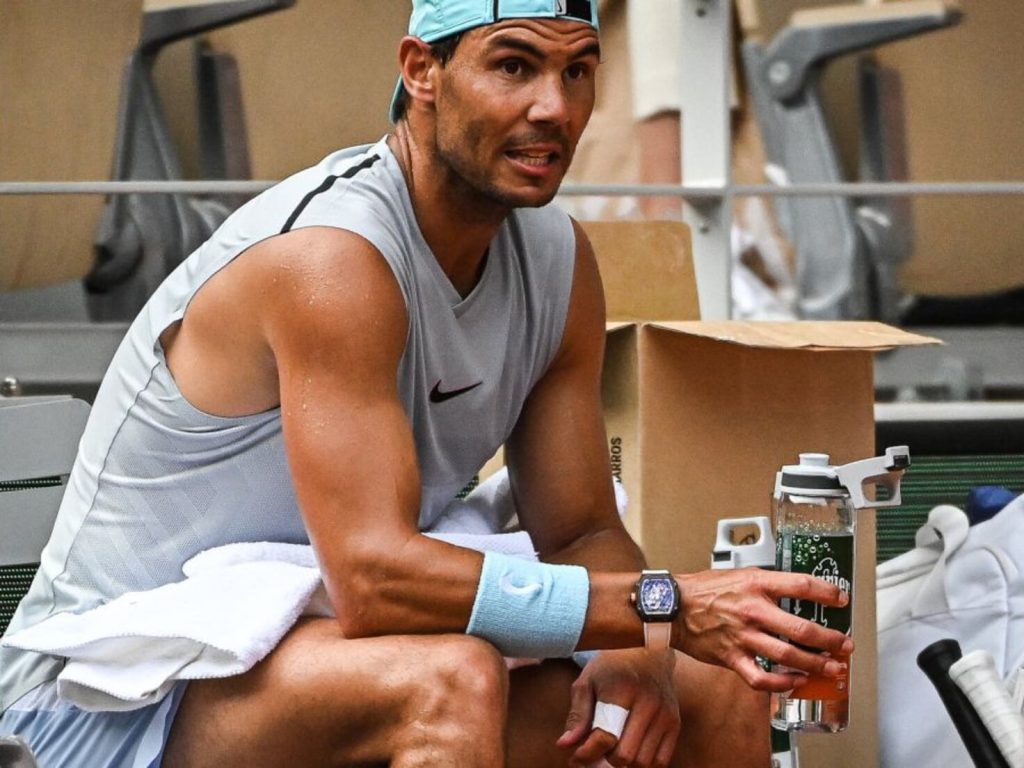When it comes to tennis, success demands more than just skill with a racket. To excel in this sport, players must master a wide range of physical and mental attributes. According to experts at the United States Tennis Association (USTA), tennis players need to develop muscular and cardiovascular endurance, explosive power, strength, quick reflexes, and acute proprioceptive awareness. These qualities enable them to perform at their best on the court, but achieving them requires more than just training; proper nutrition plays a critical role.
The Demands of Tennis Training
Tennis is a physically and mentally demanding sport. Top athletes often spend five to six hours a day training, dividing their time between on-court practice and strength and conditioning sessions. The on-court practice hones their technique, timing, and strategic play, while strength and conditioning in the gym build the physical attributes necessary for powerful serves, swift movements, and sustained performance.
This intense training regimen requires a significant energy expenditure. Without the right nutrition, athletes would struggle to maintain the energy levels needed to train effectively and recover properly. Nutrition, therefore, becomes the foundation upon which all other aspects of a tennis player’s performance are built.
The Role of Nutrition in Performance
Proper nutrition is not just about eating enough food; it’s about consuming the right balance of nutrients that fuel the body and support recovery. Tennis players need a diet that provides adequate amounts of carbohydrates, proteins, and fats, along with essential vitamins and minerals. Carbohydrates are particularly important as they are the body’s primary source of energy during high-intensity exercise. Proteins are crucial for muscle repair and growth, while fats provide a concentrated source of energy and help in the absorption of fat-soluble vitamins.
Beyond macronutrients, micronutrients like vitamins and minerals play vital roles in energy production, muscle contraction, and overall health. For instance, electrolytes such as sodium, potassium, and magnesium are essential for maintaining fluid balance and preventing cramps, especially during long matches or intense training sessions.
The USTA emphasizes that without proper nutrition, athletes cannot train at their full potential or recover effectively. Inadequate fueling can lead to fatigue, decreased performance, and a higher risk of injury. Moreover, poor nutrition can impair cognitive functions like focus and decision-making, which are critical in a fast-paced sport like tennis.

The Importance of Hydration
In addition to solid nutrition, hydration is another crucial aspect of a tennis player’s regimen. Tennis is often played in hot and humid conditions, which can lead to significant fluid loss through sweat. The sweat rate in tennis is notably high, and if players do not adequately replace the lost fluids, they risk dehydration.
Dehydration can have severe consequences on performance. As the body’s water content decreases, blood volume drops, leading to reduced circulation and impaired delivery of oxygen and nutrients to muscles. This can result in early fatigue, muscle cramps, and a decline in mental sharpness. In a sport where matches can last several hours, even slight dehydration can be the difference between winning and losing.
Experts highlight that hydration should begin well before a match or training session. Players should start hydrating the day before and continue to drink fluids during and after their activities. Water is essential, but during intense or prolonged exercise, sports drinks that contain electrolytes can be particularly beneficial. These drinks help replenish sodium, potassium, and other electrolytes lost through sweat, preventing cramps and maintaining performance.
Maximizing Potential Through Proper Nutrition and Hydration
The USTA’s experts stress that to truly reach their potential, tennis players must pay as much attention to their nutrition and hydration as they do to their training. Proper fueling and hydration are not just about avoiding negative outcomes like fatigue and cramps; they are about optimizing every aspect of performance. When athletes consume the right nutrients in the right amounts, they can train harder, recover faster, and perform better in matches.
Moreover, good nutrition and hydration support long-term health and career longevity. Tennis players who consistently fuel their bodies properly are less likely to suffer from chronic injuries, burnout, or other health issues that can derail their careers.
Conclusion
In the world of tennis, where the margin between victory and defeat can be razor-thin, every detail matters. Nutrition and hydration are two critical factors that can significantly influence a player’s performance. By prioritizing proper fueling and hydration, tennis players can ensure they are giving themselves the best possible chance to succeed, both on and off the court. As the USTA’s experts remind us, to push your body to its limits and discover your full potential, you must get everything right—including nutrition and hydration.
To achieve this, you don’t have to do it alone. As a nutritionist and health coach specializing in tennis players, I can help you optimize your diet, training, and recovery strategies to enhance your performance. Whether you’re aiming to boost your energy levels, improve your endurance, or refine your overall approach to health, my services are designed to support you in reaching your peak potential. Let’s work together to take your game to the next level.
